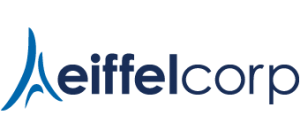Four tips for preparing stellar online content
Cape Town, 13 February 2018: According to Forbes, in 2017 South Africa had 21 million internet users. According to the research, 40% of our population went online last year, although much usage was social media, networking and entertainment, online learning and digital education are on the rise.
With the growing increase in online study, institutions and academics are under pressure to provide academic content suitable to this evolving form of learning delivery, while at the same time educating, engaging and developing the 21st century student and professional looking for additional skills to add to their knowledge base.
Online education has gone mainstream in the last few years and this means academic content has to be presented in keeping with the medium: photocopies of graphs and pictures interspersed with notes, just won’t cut it.
Myles Thies, Director of Digital Learning Services at Eiffel Corp outlined four tips for educators when preparing online learning material.
“With the results of online learning equivalent to some face-to-face classroom education, online learning opens up education possibilities for people eager to expand their training and interests,” said Thies.
Quality
It’s essential that online education provides a quality experience that’s consistent, engaging and accessible to the students it’s aimed at. Every student deserves the best opportunity to learn, so presenting concepts in such a way that makes it accessible and easier to grasp is key.
Upfront analysis (Instructional Design)
Partnerships between Subject Matter Experts (SME) and Digital Learning Experts is essential for developing quality online content.
The analysis includes:
- Defining the learning outcomes explicitly and how they will be achieved
- Aligning courses and modules to institutional standards so that consistency in appearance, navigation and progress is achieved
- Well-explained and achievable assessment that is sensitive to the students context (ie online assessments don’t suit learners who struggle with data costs for instance)
- A stable and available delivery platform such as an LMS like Blackboard Learn or Moodle
- Close alignment with recognised unit standards so that qualifications, once achieved, are credible and students are equipped with the right knowledge for the workplace
Many academics still, under pressure to produce online courses immediately, simply take face-to-face lecture notes and convert them into an online format, neglecting this crucial analysis stage. This ultimately results in a poor online learning experience for students who become distrustful of the online learning space and discontinue using it. Great online line course design is a combination of both art and science and when done well can produce highly rewarding individual and collaborative study experiences.
Storyboard/Framework mapping
By integrating the experience of the SME and Digital Learning Expert, the resulting material is right sized and correctly structured for easier consumption by the learner.
Learner Experience
The learner experience is as important as high-quality academic material. Social media has established expectations of simple navigation, easy-to-use dashboards and appealing graphics for the millennial student. Content development must try and match this to a degree and in all cases build self direction in students so that they take ownership for their own learning.
The relationship of learner to learner, learner to curriculum and learner to instructor are crucial in the development of online content.
Source: https://www.forbes.com/sites/tobyshapshak/2017/07/19/south-africa-has-21m-internet-users-mostly-on-mobile/2/#5526584136d8
Prepared by Kim Barty



